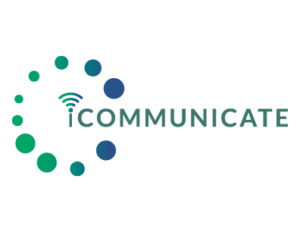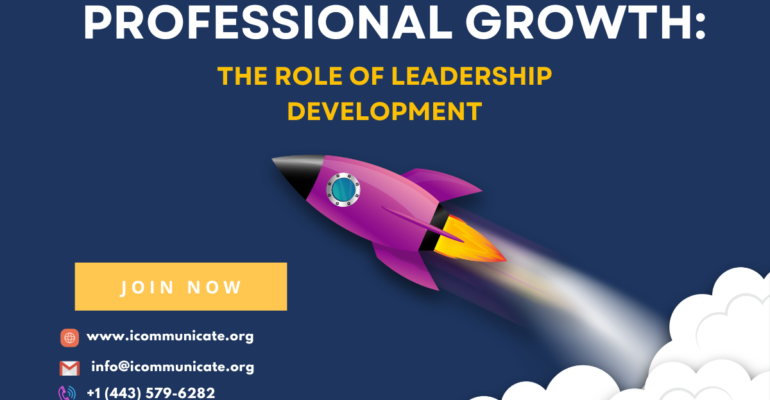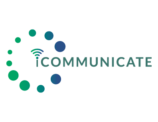UNLOCKING PROFESSIONAL GROWTH: THE ROLE OF LEADERSHIP DEVELOPMENT
November 23, 2023 2023-11-23 19:31UNLOCKING PROFESSIONAL GROWTH: THE ROLE OF LEADERSHIP DEVELOPMENT
In today’s dynamic business landscape, the journey to professional excellence is inextricably linked to the art of leadership development. This exploration offers insights into how nurturing leadership skills can catalyze personal and organizational growth.
The Foundation of Leadership Development
The foundation for leadership development is knowing yourself. It starts with a commitment to learning your triggers, what you favor and do not, your flaws, and your strengths – a deep understanding of oneself. For instance, a leader who recognizes their propensity for quick decision-making might work to cultivate patience, ensuring decisions are well-considered and team opinions valued. Similarly, leaders aware of their excellent organizational skills might leverage this to enhance team efficiency, setting an example of structured work processes. This knowledge supports personal and professional development.
Given this is the foundation of leadership development, you must relate to this as a practice to sustain and better equip yourself and your organization for growth and expansion.
The Impact of Effective Leadership on Professional Growth
Effective leadership catalyzes professional growth by creating a fertile environment for skill development and innovative thinking. Challenges become opportunities, encouraging individuals to step out of their comfort zones, accelerating their career trajectory, and enhancing their professional competencies.
Consider a leader who inspires their team through a clear vision, akin to how a seasoned captain confidently steers a ship through stormy seas. This leadership style fosters a sense of security among team members and encourages them to take on challenges. Another example is a leader’s ability to recognize and nurture individual team members’ talents, thereby creating opportunities for their growth and career advancement.
Personal Growth and Professional Growth: The Interconnected Journey
The relationship between personal and professional growth is mutually reinforcing; advancements in one’s personal development often lead to improvements in professional capabilities and vice versa.
For example, a leader who undertakes a course in emotional intelligence improves their interactions when handling team dynamics. Similarly, a professional overcoming a fear of public speaking through personal development workshops can dramatically improve their ability to communicate and lead in the workplace.
Tools and Strategies for Leadership Development
There are several tools and strategies available. Below, we have shared a few options. We recommend that you tailor these ideas to meet your needs and expand your impact.
- Mentorship Circles: Pairing less experienced professionals with veteran leaders in small group settings, facilitating a rich exchange of ideas, experiences, and strategies.
- Immersive Leadership Retreats: Organizing retreats focused on intensive skill-building, strategic thinking, and personal rejuvenation away from daily work pressures.
- Interactive Online Workshops: Leveraging technology to offer interactive, virtual workshops focusing on specific leadership skills, allowing for a more flexible and accessible learning environment.
- Cross-Functional Team Projects: Encouraging leaders to engage in projects with teams from different departments, fostering a broader understanding of the organization and enhancing collaborative skills.
Challenges on the Path to Professional Growth through Leadership
Overcoming leadership challenges is critical to growth. Leaders sometimes resort to shortcuts or quick fixes during high-pressure situations like tight deadlines or operational breakdowns. This can lead to rushing through meetings or decision-making processes, often at the expense of team input and support.
A frequent hurdle is finding the right balance between asserting one’s vision and showing empathy towards team feedback. Additionally, tailoring leadership styles to suit varied team dynamics is essential, ensuring the leadership approach is as diverse and adaptable as the team members.
Leveraging Leadership Development for Organizational Success
Leadership development is pivotal for an organization’s success, with strategic thinking playing a key role in maximizing its impact.
For example, implementing a leadership program emphasizing cross-functional training can significantly boost interdepartmental collaboration and mutual understanding. Additionally, prioritizing ethical leadership training bolsters the company’s reputation and positively influences employee morale, creating a more cohesive and principled workplace environment.
The Future of Leadership Development: Preparing for Tomorrow’s Challenges
The marketplace constantly evolves, requiring us to keep pace or become obsolete. Below are possibilities for equipping your organization for future challenges.
- AI-Enhanced Training: Incorporating artificial intelligence and machine learning in leadership training to provide data-driven insights, enhancing decision-making skills.
- Sustainable Leadership Focus: Emphasizing sustainable practices in leadership to equip leaders with the skills to address environmental and social challenges, aligning with global sustainability goals.
- Virtual Reality Simulations: Utilizing virtual reality technology to simulate complex leadership scenarios, offering real-world experience in a controlled, immersive environment.
- Global Leadership Networks: Creating platforms for leaders to connect globally, fostering cross-cultural understanding and collaboration on international business challenges.
Conclusion
In conclusion, leadership development emerges as a vital, continuous journey that intertwines the threads of personal achievement and organizational success. At its core, this journey demands a delicate balance of introspection, where leaders constantly reflect on their strengths and areas for growth; skill-building, where they actively acquire and refine the tools needed for effective leadership; and adaptability, a critical skill in an ever-evolving business landscape.
By wholeheartedly embracing these principles, leaders can unlock the remarkable potential within themselves, their teams, and their organizations. This commitment to leadership development paves the way for a future marked by extraordinary professional growth and a legacy of enduring success.


